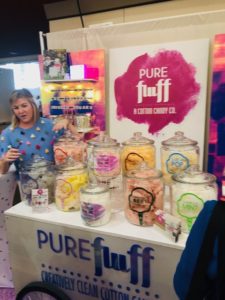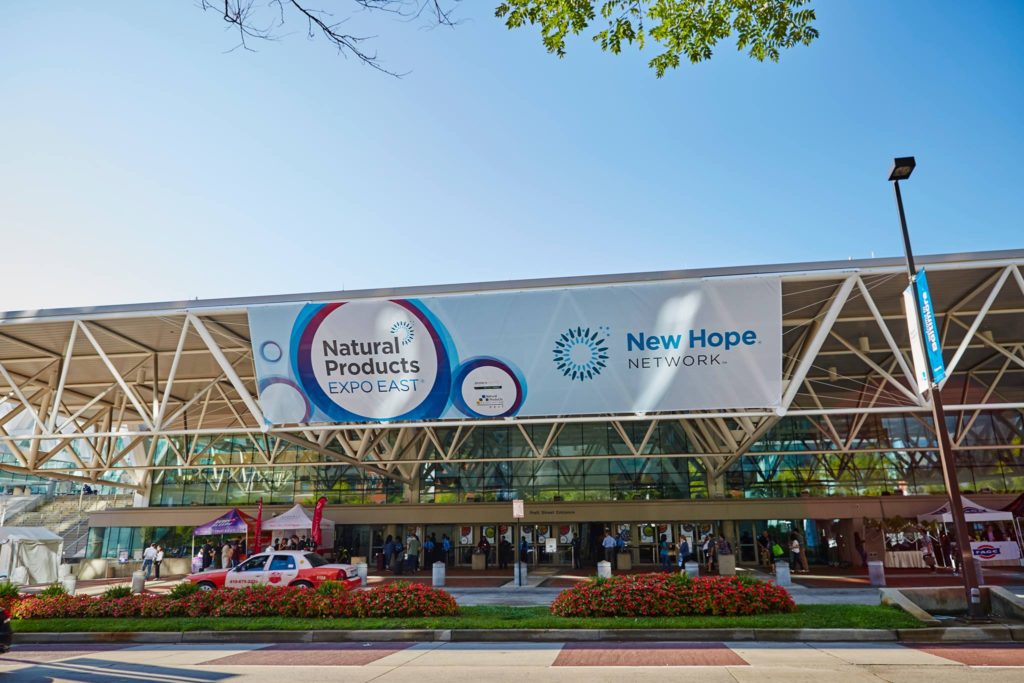By Andrew Dickow, a managing director and partner at Greenwich Capital Group
I recently attended the 35th annual Natural Products Expo East in Baltimore, Maryland, which is the industry’s largest event on the east coast hosting over 29,000 attendees and more than 1500 brands. The expo was an opportunity for the natural and organic community to share new ideas and unveil some of the newest trends. The U.S. Natural products industry grew to $219 billion in annual sales last year and I wanted to capture the key trends on full display at the show that are driving that growth.
1. CBD and hemp overload

2. Meatless jerky, mushroom jerky to be exact
Although plant-based meat alternative companies like Impossible Foods and Beyond Meat have been grabbing all the attention in the media and on Wall Street, there have been numerous other unique companies entering the space. There were a variety of companies offering a “mushroom jerky” alternative. With companies touting the health benefits of mushrooms, such as antioxidants and a high fiber content, it caught the eye of numerous expo attendees. I am a big fan of both mushrooms and jerky, but these products have some significant room for improvement on the taste and texture front.
3. Water kefir is the new kombucha
As I sat in the audience at the Expo East Pitch Slam, I was frankly shocked when I saw the winning pitch. A company by the name of Goodwolf, which makes water kefir, a raw, living probiotic drink from traditionally fermented kefir crystals, won the pitch competition. The product is straightforward — it combines two wildly popular beverages into one (sparkling water and kombucha). Founder Keenan Smith was able to wow judges with his branding and authenticity. Time will tell if there really is a market for his product.
As an aside, I really thought Brianna from the Atlantic Sea Farms company was the clear winner of the pitch. Not only was she articulate, but her overall story and demonstration that she was going to redefine how people enjoy kelp and build out a market was extremely compelling.
4. Sober curious
Mocktail anyone? There was a plethora of mocktail companies present at the Expo East. Brands like Bar None, Hella Cocktail Co., Navy Hill, and others all delivered interesting alternatives to the traditional cocktail. Many of the companies focused on traditional cocktail flavor profiles, such as a traditional Moscow Mule or an Aperol Spritz, while others focused on using current consumer trends like sparkling water and kombucha as the bases of their drinks.
5. Grain, grain go away
6. Sustainable packaging
Not only were there several companies offering sustainable packaging products at the Expo, event coordinators for the show took significant measures to reduce waste signage and booth waste. Additionally, there were sustainable booth options and “eco-stations” to compost food, cups, and other biodegradable products. Sustainable packaging is becoming just as important to consumers as what the ingredients are.
7. Plant-based everything
8. O-keto-kie
As the typical diet of consumers continues to expand, one trend that has gained a significant amount of momentum going into 2019 is the Ketogenic diet or lifestyle. With an emphasis on a high fat intake and low carbohydrates, dieters are buying into the power of the “Keto” diet. From hummus to ice cream, CPG brands are capitalizing on this growing trend. Recent M&A deals such as the acquisition of Quest by the Simply Good Foods Company for $1 billion in August are a clear sign that Keto is here to stay.
9. Ready-to-drink coffee upgrades
The ready-to-drink coffee category has been one of the fastest-growing categories in recent years. On display were some familiar brands entering the category such as The Honest Tea Co. with three new flavors of cold brew, but more importantly there were many new brands pushing the category from an innovation perspective. Companies like Bluestone Lane had cold brews with organic oat and traditional milk options, while companies like Super Coffee had options including MCT oil and protein available.

